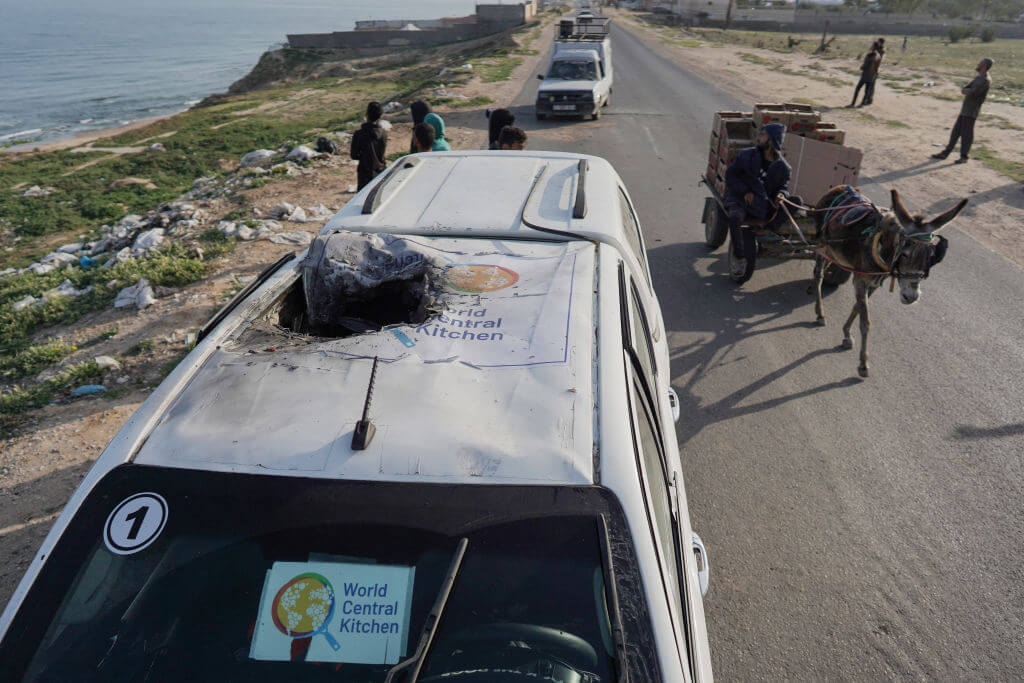Oct. 7 upended my sense of safety. Studying the Exodus story is helping me reclaim it
Learning Torah about the antisemitism our ancestors faced in biblical Egypt is the only thing consoling me since the Hamas attacks

A wadi in the Sinai desert, Egypt. Photo by iStock
“The Jewish people are more numerous and mightier than us. Let’s outsmart them, in case they grow, declare war, join our enemies, and rise from the land.”
That wasn’t scraped off 4chan or transcribed from a Times Square rally. That antisemitic paranoia, as contemporary as it may sound, was expressed by Pharaoh in the Book of Exodus — the current Torah reading in the annual cycle — to justify his eventual persecution and subjugation of his Jewish populace. It captures the arc of Jewish suffering across every land we’ve lived in.
When intense anxiety strikes — raging antisemitism, murderous terrorism and seemingly indefinite war — I tend to hyper-consume content. I obsessively check my New York Times and Atlantic apps, refresh my Twitter feed and maniacally open any Israel-related articles.
Like so many others, I turn toward news and media for some sense of control and comfort when I have none. To no surprise: None of this really worked for me — the threats facing Israel and the Jewish people still haunt me. The one place I have found consolation is somewhere we don’t often think to look: the Torah.
Those lines of Exodus capture millennia of Jew-hatred in a mere two sentences: Not only do the Jews outnumber us, but they are powerful, conniving and dangerous. If we don’t take care of them, they’ll take care of us. It succinctly articulates the motivations behind Jewish suffering.
This may sound sadistic, but I found an uncanny comfort as I read those verses. They alleviated my angst more than any Bret Stephens article ever could.
For a generation like mine who never experienced the movement to free Soviet Jewry, the 1991 Crown Heights riots or the Second Intifada, the pernicious threats facing Israel and the Jewish people today are wholly unprecedented. I’m left with unanswerable, burning questions: Is this the coming of a second Holocaust? Will this lead to a third exile from Israel? Can we be safe anywhere?
These existential questions constantly lurk behind me, breathing into my ear. My grandparents were Holocaust survivors, so I know never to deny danger simply because I wish it wasn’t there.
Studying Torah and learning narratives like the Exodus story comfort me because they offer me a window into what Rabbi Joseph B. Soloveitchik called in The Halakhic Mind “the experience of time as repetition” — a cyclical experience of history that winds up our “past” and “future” to reappear in our present. The Exodus story specifically gifts us the timeless themes of Jewish history: we suffer, survive, thrive and repeat. As I read of our enslavement last week, I will read of our liberation next week.
This point is made explicitly by Rabbi Abraham Isaac Kook, who says, “In truth, with a penetrating consciousness, we come to know that the essence of the Exodus is an act that never ends at all.” The Jewish story is a timeless one, beyond the rigid confines of chapters in history.
That’s also a sentiment foundational to the state of Israel. The Jewish narrative in progress is reflected in Israel’s Declaration of Independence — a document contextualizing its revolutionary creation in a story much greater than the 20th century alone.
Learning Torah invites me into that greater Jewish story — one defined by redemption, not catastrophe. Whether in the Middle East or Eastern Europe, fanatic hatred ruptured our lives, homes and safety, but our undying faith and resilience repaired it. Jewish tradition insists that narrative will always hold true for us — even today, with Israel defending a tenuous northern front and America facing unimaginable antisemitism. Twitter tempts me to despair, but Torah allows me to hope.
I think Hamas’ recent murder, rape, and destruction jolts us so violently because it shattered our conviction that, finally, the Jewish people are liberated from the vulnerability, the helplessness, of exile. Israeli author Yossi Klein Halevi said it well on a recent podcast: “What Oct. 7 represents, I think for Israelis, is a violation of Zionism’s promise to the Jewish people to create a safe refuge. And this goes to the heart of the Israeli ethos.”
Like most Jews, Oct. 7 has upended my sense of safety — as a new immigrant to Israel, an American raised in New York City and a Jew with loved ones living in cities where “globalize the intifada” has become a mainstay. Those are real dangers and genuine threats. I know that in my mind and in my bones.
But despite all that, when I turn to the Jewish tradition and peer into the Torah’s eternal window, I viscerally sense that in the throes of our pain, our story is not ending. Today we feel the clench of Egypt’s suffocating grip, but tomorrow we feel the freedom of liberating release.
To contact the author, email [email protected].
























